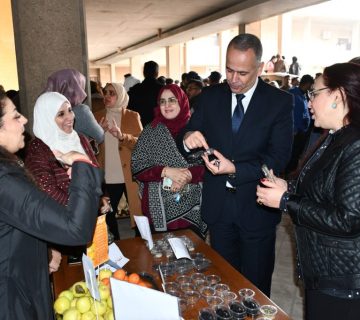Investigating Sustainable Concrete with Recycled Demolition Materials. This study explores the analysis of sustainable roller-compacted concrete, integrating reclaimed construction waste. By means of thorough examination and a robust academic debate, it uncovers the potential of this eco-friendly method.
Introduction:
Abdullah Toman Trad, a master’s student in the Department of Civil Engineering, investigates sustainable construction materials through his pioneering thesis “Efficiency Investigation of Sustainable Roller Compacted Concrete with Demolished Building Wastes” that dives into eco-friendly building practices. This study analyses sustainable concrete formulations enriched with reclaimed construction materials. The aim is to promote environmental responsibility in the construction industry.
Trad’s academic journey focuses on creating environmentally sustainable roller-compacted concrete (RCC). This is achieved by incorporating reclaimed building materials, like clay bricks, alabaster, and window glass, while reducing cement content. Rigorous laboratory tests assessed the efficacy of these environmentally-friendly concrete mixes, confirming their suitability as a sustainable option for construction endeavours.
The research adhered to recognised academic conventions, ensuring linguistic accuracy, grammatical propriety and flawless formatting. Specialised terminology was elucidated, and subject-specific lexicon was uniformly employed across the dissertation, accommodating a broad readership.
Conclusions are possible:
This in-depth investigation not only offers a feasible strategy for environmentally sustainable reinforced concrete construction but also highlights the prospect of reclaimed construction materials to curtail waste and mitigate environmental damage. The outstanding mark conferred upon the researcher after presenting and deliberating these conclusions with the scientific community attests to the significance of this enterprise. This study provides a significant addition to the domain of sustainable building materials, proposing a viable and environmentally friendly alternative to be considered in upcoming construction projects.








